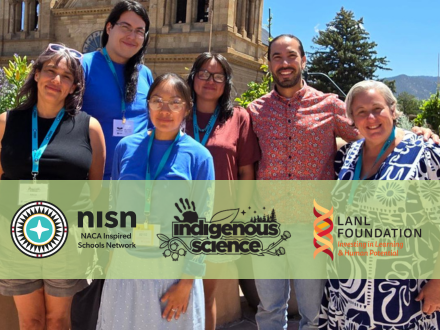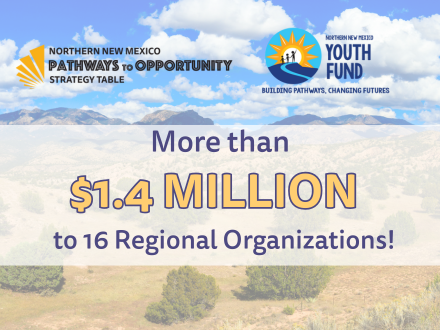September 28, 2022 – In December 2020 and January 2021, the LANL Foundation surveyed 573 educators (463 teachers and 110 school leaders) about their understanding and approach to Social Emotional Learning (SEL) in their classrooms and schools. In addition, we held twelve focus groups with respondents to qualify our survey findings. In sum, educators from 88 schools within 20 Local Education Agencies in Northern New Mexico participated in this study. Survey and focus group respondents were from: Tribal/BIE Schools, Chama Valley Independent School, Charter Schools, Española Public Schools, Los Alamos Public Schools, Pojoaque Public Schools, Santa Fe Public Schools, and Taos Municipal Schools. Today, we are releasing the results of those surveys, as well as our recommendations for integrating SEL into our schools going forward.
Introduction: SEL nurtures our social, emotional, and cognitive development from birth to adulthood. School-based SEL develops the conditions necessary for nurturing children, youth, and adults’ potential. SEL in schools includes implementing effective SEL programs, but it also involves integrating SEL practices into the culture of our schools and classrooms so that every child has access to learning environments that are caring, cooperative, culturally and linguistically responsive, well-managed, participatory, and safe. There is strong evidence that when SEL is integrated in schools, it has a positive impact on a wide range of student outcomes, including academic performance, healthy relationships, mental wellness, and more. Students thrive academically when they have access to learning environments that are responsive to their lived experiences and are mediated through strong positive relationships. When they are well-implemented, school based SEL programs have been shown to enhance students’ social and emotional competence, promote academic achievement, and prevent mental, emotional, and behavioral problems.
There is increasing recognition that integrating SEL successfully into New Mexico’s schools means addressing deep-seated inequities, including those articulated in the landmark Martinez/Yazzie vs. State of New Mexico lawsuit, where a judge ruled that the state was failing to help all students thrive, especially those who are Native Americans, English learners, identified as requiring special education services, or come from low-income families. SEL must go hand-in-hand with culturally and linguistically sustaining approaches that support educators to develop both cultural proficiency and cultural humility. SEL practices should align with local cultures and contexts by engaging communities and families in the work alongside educators.
Background: Educators and students returned to the classroom last year after a traumatic period that included extended remote learning, isolation, and economic uncertainty. Despite being back at school, the pandemic rages on, as do civic and climate unrest. Teachers are working overtime to address their students’ mounting academic, social, and emotional needs. At the same time, we have learned more about how people learn and develop. Children grow and develop along interacting trajectories that include cognitive, physical, social, emotional, metacognitive, cultural, and linguistic dimensions. We also understand that children develop based on the opportunities they have to learn in the contexts where they spend time, such as children’s homes, schools, communities, and nations. To support children and youth to thrive in the 21s Century, educational practices need to align with our deeper understanding of what supports children’s thriving. At this critical juncture, we have the opportunity to recognize the vital role that educators play in supporting children’s social, emotional, and cognitive development. Educators create the conditions that support children to thrive and know they belong in school and beyond. In other words, SEL is needed now more than ever.
Read: The Executive Summary
Read: The Full Report


